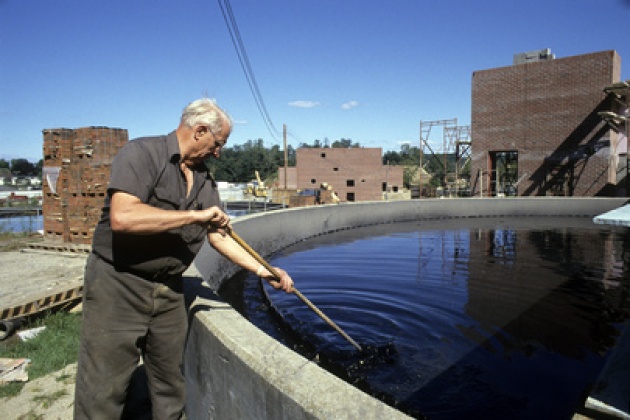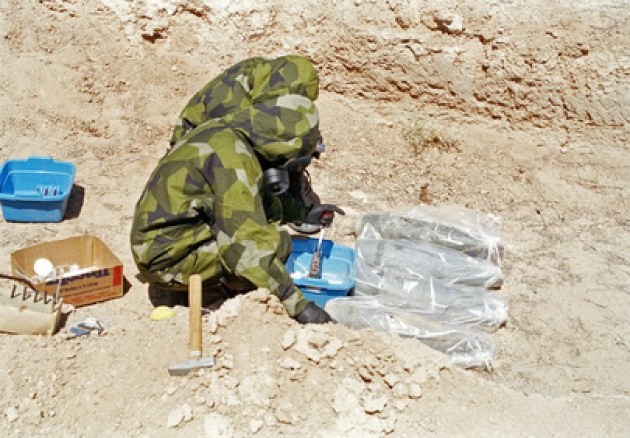
“The gains that chemicals can provide must not come at the expense of human health and the environment. Pollution and disease related to the unsustainable use, production and disposal of chemicals can, in fact, hinder progress towards key development targets by affecting water supplies, food security, well-being or worker productivity,” says UNEP’s Executive Director, Achim Steiner. “Communities worldwide – particularly those in emerging and developing countries – are increasingly dependent on chemical products, from fertilizers and petrochemicals to electronics and plastics, for economic development and improving livelihoods.” The delicate balance between and benefit is highlighted in the Report titled “Global Chemicals Outlook” and an extensive Press Release from the UNEP linked below. (Above UN Photo US sludge pool)
The Report addresses a range of concerns:
---damaging consequences to the environment;
---impact upon human health; and
---economic burden of treating chemical poisoning.
Also Read our Blog for Film: “Racing Toward Economic Unsustainability” .

Economic Costs of Poisoning & Harm Exceeding Costs Borne by Industry:
For sub-Saharan Africa the estimated costs of poisonings from pesticides now exceeds the total annual overseas development aid given to the region for basic health services, excluding HIV/AIDS. According to UN News Centre: From Sudan and Ecuador, to bigger economies such as China and the United States, the costs of pesticide poisoning, water pollution, and toxic waste, among other issues, are not being borne by manufacturers and industries, but by social welfare systems and individuals, the report notes. It calls for sustainable chemical management policies not just to combat these costs, but also to improve livelihoods and develop green technologies. See our Film for Blog: "Caribbean Pollution". (Above UN Photo - Jamaica)
“The economic analysis presented in the Global Chemicals Outlook demonstrates that sound chemicals management is as valid an area as education, transport, infrastructure, direct health care services and other essential public services,” said the World Health Organization’s (WHO) Director for Public Health and Environment, Maria Neira, in a news release. “This could foster the creation of many green, decent and healthy jobs and livelihoods for developed and developing countries.”

Private & Public Sector Working Toward Safer Alternatives:
Some of the recommendations put forward by the report include the integration of chemicals management into national social and economic plans, the development of policies focused on risk prevention and promotion of safer alternatives, and encouraging the private sector to play a more active role in development safety policies in conjunction with governments. According to Mr. Steiner: “To harness the economic benefits of sound chemicals management, closer cooperation and better planning is required between government ministries, public and private sectors, and others in the chemicals supply chain. This requires broad and ambitious efforts, underpinned by strategic financing. Such action can elevate chemicals management to the top of the international policy agenda and help deliver inclusive sustainable development.”
Link to UNEP Press Statement & Full Report
Ambassador Muhamed Sacirbey - FOLLOW mo @MuhamedSacirbey
Facebook-Become a Fan at “Diplomatically Incorrect”
Twitter – Follow us @DiplomaticallyX
See more at our Popular Video Blogs & Current News Event Articles – Ecology-Diplomat Channel



